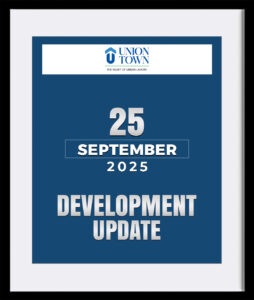Covid-19 has put a lot of pressure on technology, and it’s just going to become worse. Every business, including residential real estate, is being influenced by it. Due to a lack of alternatives, the real estate business has been compelled to incorporate technology in the last two years. Everything has changed because of technology, including how clients obtain homes.
Based on my agency’s experience helping real estate clients with their marketing, here are some digital-focused strategies to prepare your real estate company for what lies ahead.
Usage of VR and AR for property display:
Prospects can take a virtual or augmented reality tour of an undeveloped or completed house unit without ever stepping foot inside. While shooting, homeowners bring 360-degree cameras into their houses and set them in strategic locations. After that, skilled video editors comb over the film to create a seamless 3D experience.
The advantages of a virtual reality experience are dual. Prospective buyers might form an emotional bond with the home, just as they would with a physical one. The customer will also save time and travel expenses by not having to view the property physically. On the other side, the homeowner may use the visits to build trust in potential buyers, speeding up the acquisition process.
Plan and make decisions based on big data:
Big data is essential for any organization in speeding choices that result in a better customer experience. The availability of AI technologies backed by massive datasets is boosting the growth of technology firms to new heights.
As a result, real estate companies find it simpler to make judgments. The sort of structure to constructing, the methods to reach their target market, and the price of a particular property are all examples of such decisions.
Increase the use of smart property contracts:
Contracts of the past are slowly but steadily becoming outdated. This is because intelligent contracts attempt to eliminate the ambiguity that affects both parties throughout property-ownership swap schemes. Transferring property ownership between a buyer and a seller is a demanding process. The hazards that both parties must accept throughout the property exchange procedure are too significant to be overlooked.
A smart contract is an electronic method that only performs transactions when specific requirements in a code are satisfied. What is expressed in the form of computer code is stated in traditional contracts by extensive sentences? When two parties enter into a smart contract, they automatically agree to fulfill the contract’s precise criteria for the contract to be completed. This removes the need for a third party and reduces the danger of misinterpretation of any of the contractual terms in place, as is the case with traditional contracts.
Mobile apps should be able to access major activities:
It’s no surprise that mobile applications are changing the game regarding productivity and profitability. Their effect on the industry went beyond a simple job or buying process simplification. They proved to be an excellent tool for boosting productivity via creativity. The frequent appearance of new mobile applications with high-creativity features is to blame.
However, some applications are expressly designed to enhance the user experience. These applications include automated tools for calculating rent, tax savings, and buying prices, among other things. With the growth of technology and the introduction of new features, it is expected that even critical real estate operations and transactions will be conducted through mobile applications.
Final thoughts:
The real estate sector is slowly but steadily becoming more digital. The finished result will be all we could have hoped for.








